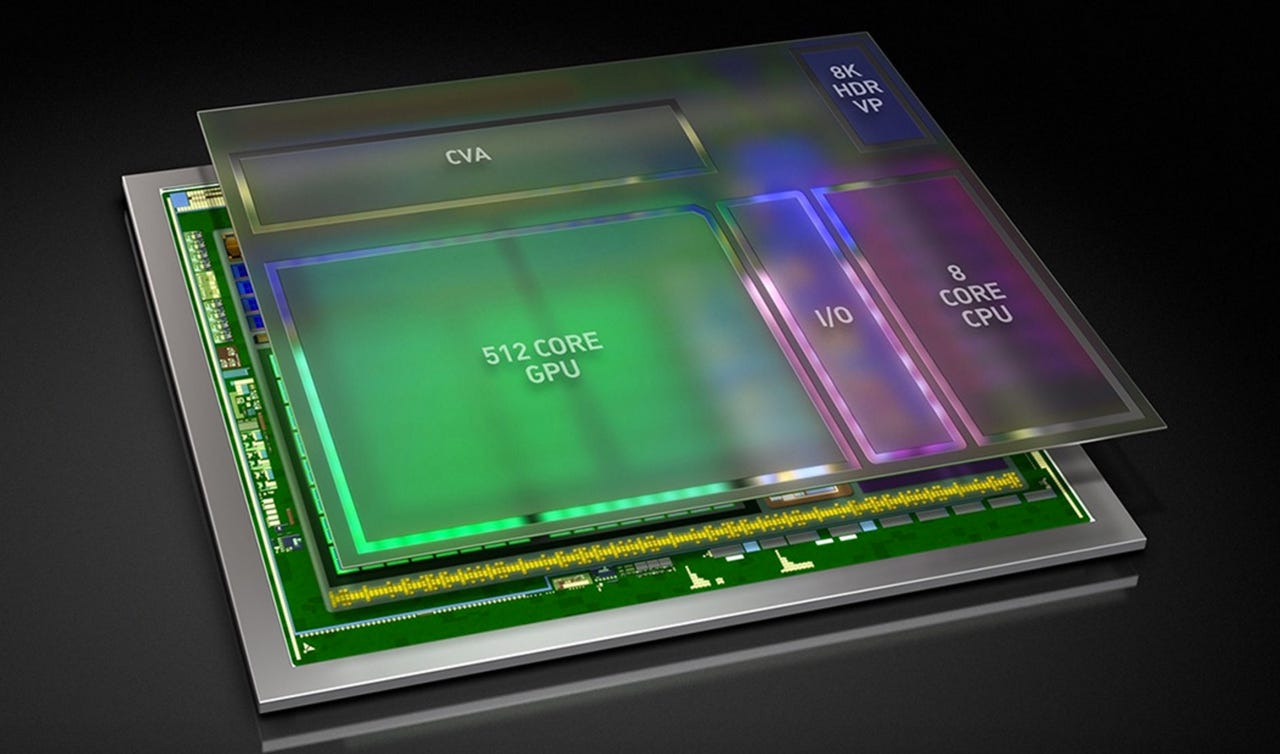Nvidia reveals 'supercomputer' for self-driving cars


Xavier is designed for use in self-driving cars.
Nvidia has unveiled Xavier, a new "supercomputer" system-on-a-chip (SoC) which will act as the control center for future autonomous vehicles.
On Wednesday at the GPU Technology Conference Europe in Amsterdam, Nvidia CEO Jen-Hsun Huang revealed the SoC, branding the chip the "greatest SoC endeavor I have ever known."
Dubbed Xavier, the SoC integrates a new GPU architecture called Volta, a new 8-core CPU architecture and a new computer vision accelerator. The US chip maker says the processor can deliver up to 20 trillion operations per second in performance, while only consuming 20 watts of power -- an important aspect for vehicles.
In addition, as the chip has been developed with the vehicle industry in mind, Xavier will be compliant with automotive standards, such as the ISO 26262 safety specification.
Nvidia says that the "supercomputer" will be able to replace processors used in today's vehicles, including the DRIVE PX 2 -- configured with dual mobile SoCs and dual discrete GPUs -- at a fraction of the power.
Autonomous vehicles are being researched by companies across the globe, including Google, Ford and BMW. We already have models appearing on the road with driver assistance and semi-autonomous controls -- such as Tesla's Autopilot, rear cameras and environmental sensors -- but it will be a while before self-driving cars will be ready for the highway and regulators give them the green light.
In August, Mobileye and Delphi Automotive teamed up to create a fully autonomous platform that automakers can utilize to make their cars smarter in the future.
See also: Ford: Self-driving cars are five years away from changing the world
Nvidia also used the conference to announce a partnership with two European artificial intelligence research centers, the German Research Center for Artificial Intelligence (DFKI) and Switzerland's Dalle Molle Institute for Artificial Intelligence (IDSIA) to accelerate the development of technology in the AI field.
Samples of Xavier will be available at the end of 2017 to automakers, researchers and suppliers who are developing cars with self-driving capabilities.